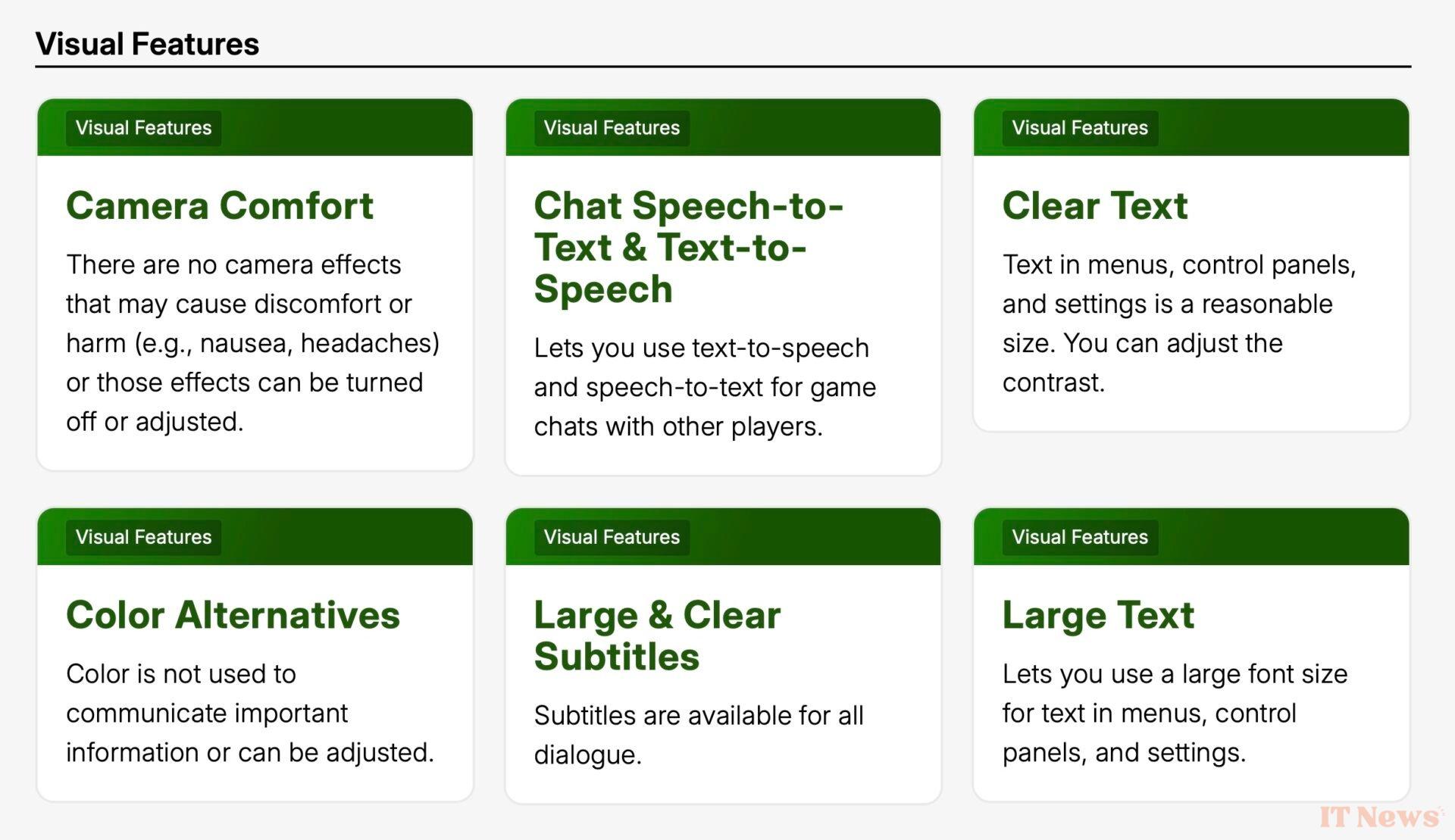Game developers are increasingly integrating accessibility options into their creations. This can be larger subtitles, dialogue translated into sign language (as in Forza Horizon 5), the ability slow down the action (like in Spider-Man 2), or simply invert the controls or change the colors for colorblind people. Until now, everyone was moving in their own corner, and players had a hard time finding out about these accessibility options before paying.
Finally, a standard for accessibility in video games
Several big names in the industry have grouped together within the Accessible Games Initiative, under the aegis of the ESA (Entertainment Software Association), to standardize communication on these options. Nintendo and Microsoft are among the founding members of the initiative. Unfortunately, Sony is missing from the list, even though the PlayStation manufacturer did participate in the development of the system. It also includes Ubisoft, Electronic Arts, Google and Riot Games, the developer of League of Legends.
Members agree to use 24 tags that clearly indicate the accessibility features of their games. For example, they will announce whether the game offers an option to play on-screen audio for menus, to save the game at any time, to completely change the behavior of buttons, or to adjust the movement of the camera to avoid unpleasant effects.
Four categories in total have been implemented: audio features, gameplay features, interaction features, and visual features. These labels will be found on the game pages of online stores, or directly on the game's website. Unfortunately, there is no set date for the implementation of these labels; everyone is going at their own pace.
On the hardware front, manufacturers are also making a lot of efforts to help gamers with reduced mobility. This week, Microsoft launched the Xbox Adaptive joystick for 30 euros. This controller, which looks like a Wii nunchuck, connects via a wire to other peripherals like the Xbox Adaptive Controller to facilitate in-game controls.
Source: The Verge





0 Comments